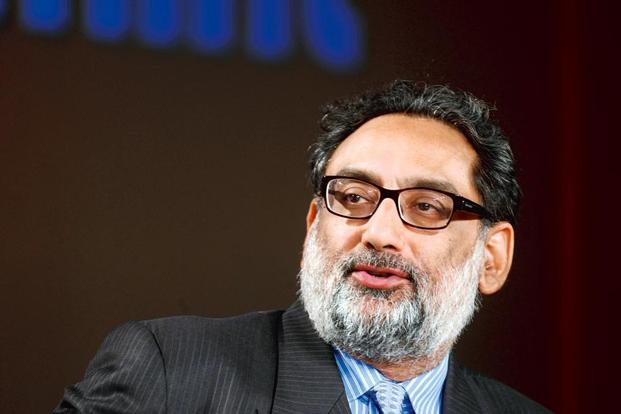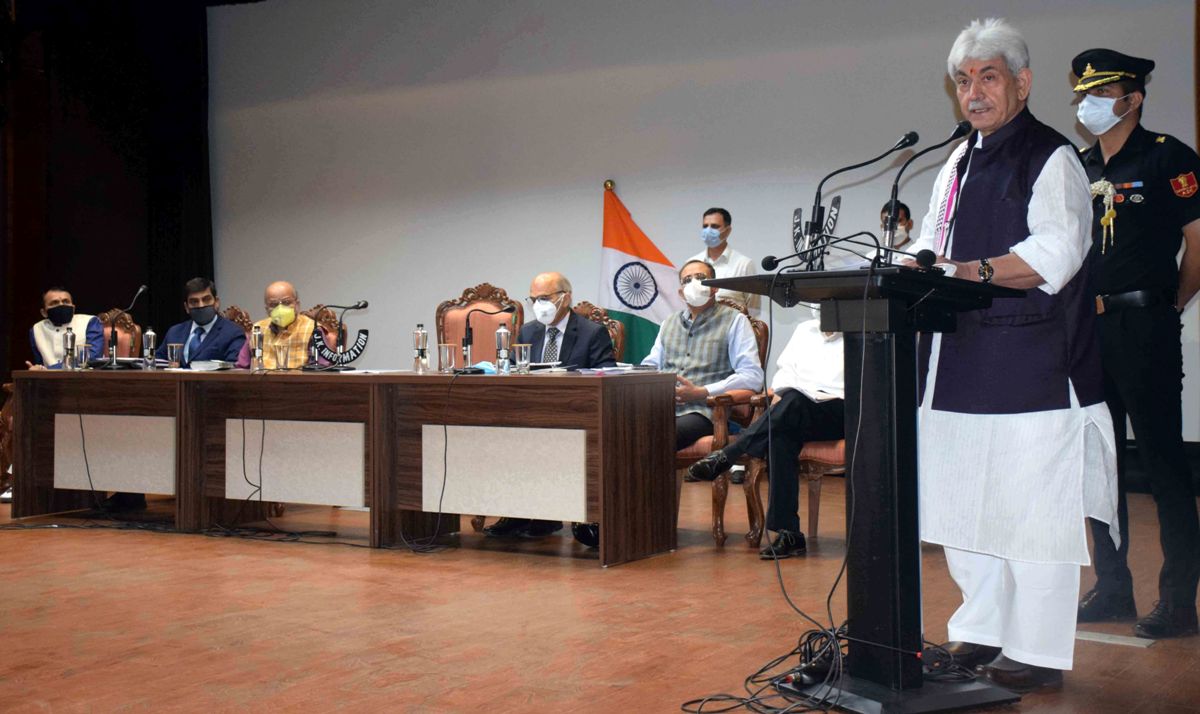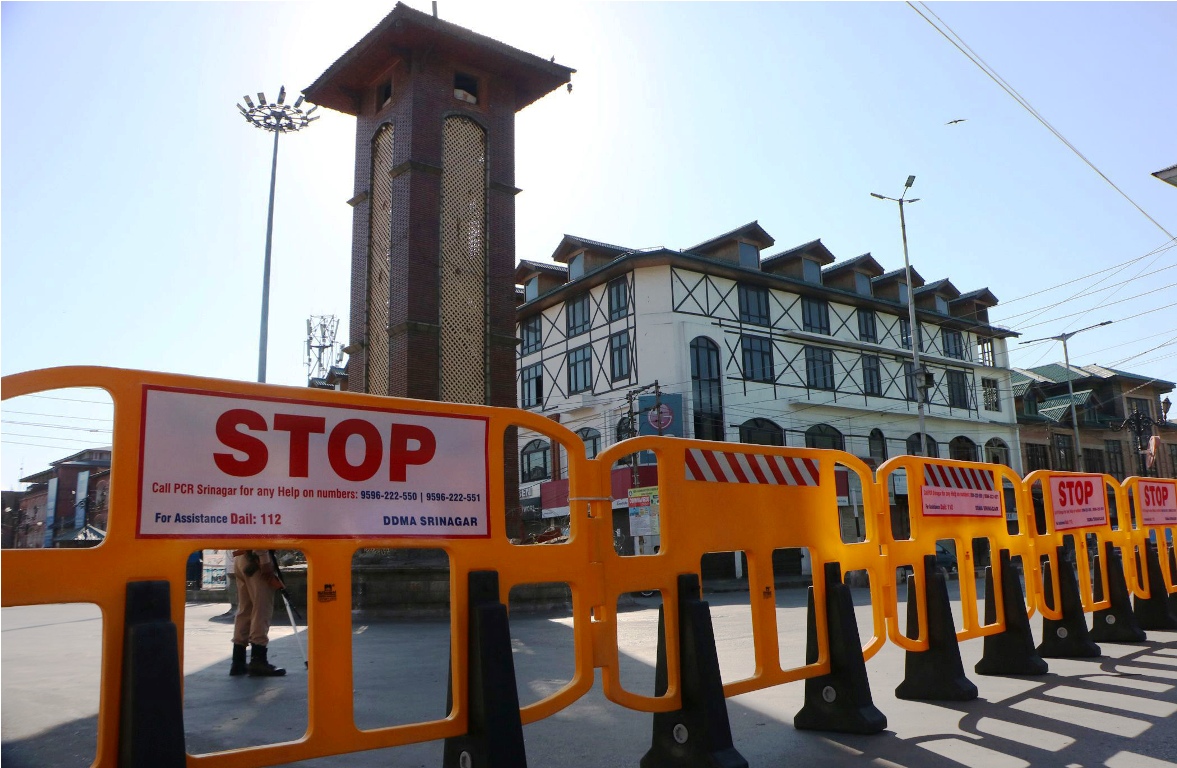The shutdown of 2019 was followed by the pandemic lockdown and it has created a crisis for the economic wellbeing. It was in this backdrop that the Jammu and Kashmir administration announced an economic package. In this interview, economist Dr Haseeb A Drabu, the former Finance Minister of the erstwhile state, offers ideas about how the policymakers must intervene to prevent the crises getting unmanageable and how to gradually help the growth sustain the economic activity

Haseeb Drabu
KASHMIR LIFE (KL): Jammu and Kashmir administration announced Rs 1,350 crore package last week. What is this intervention all about?
HASEEB A DRABU (HAD): It is a good package. In fact, if you were to consider how the Government of India has handled the economic impact of the pandemic in the country, it is an excellent one. From among the state governments, in my opinion, it is next only to that of the Government of Kerala. The Kerala government policies have a better redistributive component than the Jammu and Kashmir package.
Compared to other economies Kashmir doesn’t have a serious incidence of structural unemployment. What we do have is a severe issue of under-employment. The conversion of under-employment into unemployment will need to be addressed.
KL: The erstwhile state has had much bigger packages – one even Rs 80,000 crore. So how can this be of help Jammu and Kashmir?
HAD: Those were rehabilitation and reconstruction packages. This is a relief package. Hence the two are not comparable. If you look at it closely, it is a one-point package; interest relief. Out of the Rs 1,350 crore, Rs 950 crore is in the form of interest subvention. Of the remaining, Rs 400 crore, about Rs 100 crore has been given as relief on electricity and water charges to commercial and industrial power consumer and the rest is recycling earlier initiatives.
But as I said, the interest relief is significant. The most important part of the package is that unlike any other interest relief package this one doesn’t defer the burden of borrowers, it actually reduces the interest burden of the standard borrowers. Actually, it is effectively an interest rate reduction of 500 basis points for one year for the Jammu and Kashmir borrowers. On this front, I don’t think more could not have been done.
It will not provide any relief to the impaired accounts. While this is the right thing to do, the fact is that there are a lot of stressed and sub-standard accounts who also need to be helped.
Much will, however, depend on how it is implemented by the Bank. There is need to issue uniform procedural guidelines and not left to the discretion of individual bank managers.

Lieutenant Governor of Jammu and Kashmir Manoj Sinha addressing a press conference in Srinagar over economic package on Saturday, September 19, 2020. KL Image by Bilal Bahadur
KL: This package did not create a fair balance between a person who is indebted to bank and to a farmer, who had no loan even though both suffered since August 2019?
HAD: That is a key issue. It is a relief only for the bank borrowers. And a breather for the Jammu and Kashmir Bank! So it is not a package for the people but for the business and economy. It is hoped that with this relief, trade and commerce will pull through these difficult times and ensure some economic activity so that the process of income generation in the economy starts and trickles down to the lower strata of people who are the worst affected both in terms of life and livelihood; the workers, the casual employee, the farmhand, the artisan; basically the informal sector which is the backbone of the economy of Kashmir.
It will not provide any relief to the impaired accounts. While this is the right thing to do, the fact is that there are a lot of stressed and sub-standard accounts who also need to be helped.
KL: Given the costs that the situation exacted from Kashmir economy, what are the key stress points in the Kashmir economy?
HAD: The lockdown and the pandemic impaired not only the economic growth but also impacted the income distribution and poverty. While historically, the economy of Kashmir has had low levels of poverty compared to the all-India average, when we look at urban poverty, it is higher than rural poverty. We do not have a problem of rural poverty because of land reforms in the 1950s and commercialisation of agriculture in the 1970s. However, we have issues of urban poverty. This pandemic is having a much greater impact on urban poverty.
While we don’t have issues of absolute poverty, we have a serious issue of income inequalities. The income inequality will widen considerably even as immiseration of the urban masses will happen. This needs to be addressed through direct policy intervention because most of these people are not bank borrowers. So it doesn’t change anything for them.
KL: What can be done to alleviate this?
HAD: If you recollect the Jammu and Kashmir Budget of 2017-18 had tried to address the issue of urban poverty. I had set out to create a social security system for all the construction workers in the state. The most important element of the social security system for this section of the working class is to ensure the availability of a small corpus of money for meeting emergent and urgent basic household or familial needs. This will help them survive the pandemic even as it will have a positive multiplier effect in the economy.
As Minister for Labour, I had initiated Cash Credit Facility up to Rs 10,000 at one-year MCLR for every registered construction worker, with in-built comprehensive insurance – covering life, health and accidental insurance. For these, all the three premiums were to be paid by the Jammu and Kashmir Constructions Labourers Board on behalf of the workers. Something of that kind needs to be done. The distress in urban Kashmir is mounting.

Lal Chowk, the heart of Srinagar on July 13, 2020, when the second phase of lockdown started for containing the Covid-19. KL Image: Bilal Bahadur
And also to make sure that the rural area is insulated from distress, this is the time to ensure that the horticultural sector is helped in realising the value of their produce and protecting their margins. There is a collapse of national demand. So, I would suggest that costs of packaging and transportation should be reduced. This will protect their margins and incomes. A package for transport relief needs to be worked out.
This is especially important as after the clampdown in August, trade links have been badly disrupted and business networks are in disarray. Business confidence has been shaken. This has resulted in the shrinking of the regular trade cycle of supplier’s credit. This in turn has forced the trade, especially the wholesalers, to exhaust their working capital lines/ cash credit lines making the businesses illiquid.
As regards the crafts segment, the urgent need is to monetise the inventories that are piled up and the cost of carry is high. Some of the cost of carry for larger players will get reduced because of the interest burden. For the small and medium players, there has to be a way to free their capital that is locked up in the form of inventories in the showrooms, shops and workshops. Today, they have inventories that can neither be liquidated nor monetised. The businesses have assets that they can’t sweat because of demand disruptions; they can’t leverage them because of credit limits having run out.
The Government can act like a buyer of crafts through its undertaking and buy out all the inventory of carpets and other handicrafts. It will not cost more than Rs 200 to 300 crore. They can hold these inventories for two years and then either do a buyback when the situation improves or sell it when the going is good. It will not only regenerate the crafts economy but will also give a fillip to income generation.
KL: How will the falling GDP across India impact Jammu and Kashmir in the coming days?
HAD: Very adversely. Kashmir is not new to lockdowns. Before the pandemic, 2019, the valley has been under a lockdown. But at that point, goods and services produced by the local entrepreneurs could be sold in the national markets, right across the country. Today that option has shrunk because of the pandemic. The national markets have been shut or operating at 10 per cent capacity. Demand has collapsed. There has been a massive income shock. And what Kashmir exports, are essentially luxury items like carpets and shawls. Or non-essentials like apples. That is always residual demand. When incomes falls, aggregate demand drops, it is the residual demand that is first to be impacted. So Kashmir economy will face a severe shortage in demand.
We don’t have a problem of rural poverty, we have an issue of urban poverty. This pandemic is having a much greater impact on urban poverty. The income inequality will widen considerably even as immiseration of the urban masses will happen. This needs to be addressed through direct policy intervention because most of these people are not bank borrowers.
KL: What will happen to employment?
HAD: Compared to other state economies and even in comparison with the all-India level, Kashmir doesn’t have a serious incidence of structural unemployment. What we do have is a severe issue of under-employment. The high incidence of under-employment will now show itself up in terms of an increased level of unemployment. In our economy, we have less of wage employment outside government and more of self-employment. In Jammu and Kashmir, we have either government employment or self-employment. There is hardly any private sector employment. Given the already very high levels of government employment, there is a need to regenerate self-employment.
KL: What is the state of the banking sector in India and how Jammu and Kashmir Bank is going to be impacted in coming days?
HAD: This is perhaps the worst period for the banking sector in India that I have ever seen. There are huge issues about the asset quality of banks and the credit lines are getting severely chocked because of regulatory norms that have been designed for a steady state economy. Today there is a crisis and no one is looking at changing the prudential norms. Jammu and Kashmir Bank is facing the same issues and more. But, this package will give them a breather. In that sense, this package is good for businesses and banks!
from Kashmir Life https://ift.tt/30n1uKS
via IFTTThttps://kashmirlife.net
No comments:
Post a Comment